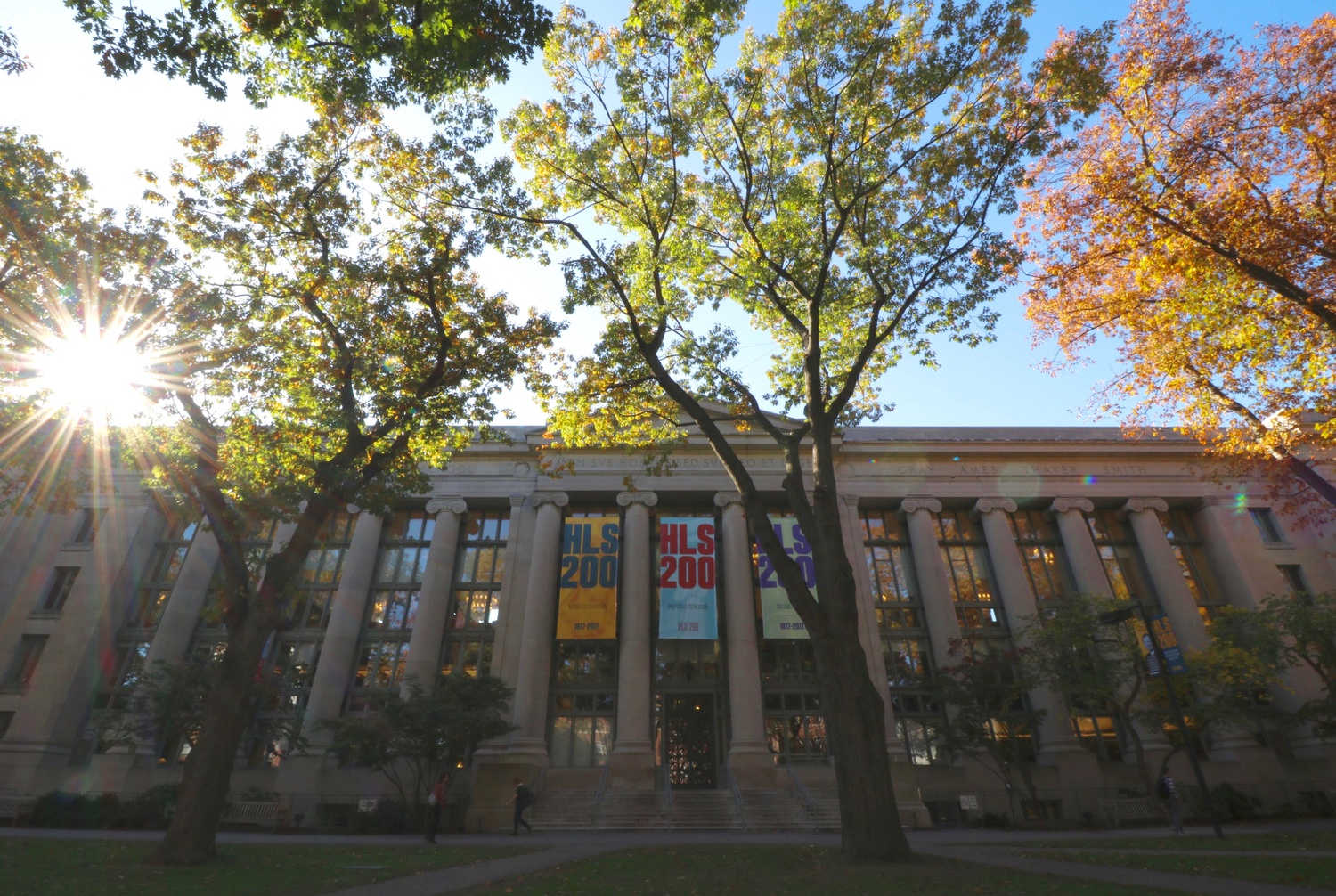
News
Summers Will Not Finish Semester of Teaching as Harvard Investigates Epstein Ties

News
Harvard College Students Report Favoring Divestment from Israel in HUA Survey

News
‘He Should Resign’: Harvard Undergrads Take Hard Line Against Summers Over Epstein Scandal

News
Harvard To Launch New Investigation Into Epstein’s Ties to Summers, Other University Affiliates

News
Harvard Students To Vote on Divestment From Israel in Inaugural HUA Election Survey
Harvard Black Law Students Association Calls Winthrop Climate Review an ‘Outsized Response’

The Harvard Black Law Students Association released a statement Sunday supporting Faculty Dean and Harvard Law School professor Ronald S. Sullivan, Jr.’s decision to represent Hollywood producer Harvey Weinstein and criticizing College administrators’ decision to launch a climate review in Winthrop House.
The statement alleged the College’s response to student outcry over Sullivan’s decision had “racist undertones” and contested arguments that attorneys should not represent people accused of sexual assault and rape. BLSA also affirmed its support for survivors of sexual violence and praised Sullivan’s previous work as a defense attorney.
“Professor Sullivan has been HBLSA’s faculty advisor for many years,” the members wrote. “Because of this, HBLSA finds it important that we speak to the controversy and make the ask of Harvard University to both unequivocally support survivors of sexual violence and to do so in a way that does not scapegoat Professor Sullivan for the University’s failings to address sexual violence on campus.”
Sullivan has faced scrutiny since he announced he would represent Weinstein on Jan. 23. In open letters, protests, and editorials, some students wrote that they believe Sullivan’s representation of Weinstein creates a negative environment for Winthrop students who have experienced sexual violence. Some of those students have called on him to step down from his post as faculty dean.
In the days after his announcement, Sullivan sent two emails to Winthrop residents. In the first, he cited defense lawyers’ duty to represent “unpopular” defendants. In the second, he and co-faculty dean Stephanie R. Robinson laid out a set of “processes,” including designating Resident Dean Linda D.M. Chavers as the “point person” for issues related to sexual misconduct.
BLSA wrote in their statement that they defer discussions of Sullivan’s role as a faculty dean to undergraduates because they are “not equipped” as law students to weigh in on a College-specific position.
“If the students who have this unique relationship have raised concerns, either as students in Winthrop House or as members of the broader Harvard College community, their critique deserves to be heard on its own terms and in light of their unique relationship as a student of Harvard College engaging with a Faculty Dean rather than the implications of that relationship being ignored or dismissed wholesale,” the members wrote.
In response to undergraduates’ concerns, Dean of the College Rakesh Khurana launched a climate review in an email to Winthrop residents Feb. 25. The ongoing review, led by former Dean of Freshmen Thomas A. Dingman ’67, allows House affiliates two options to share their thoughts on Winthrop’s climate — meeting with Dingman or his colleague Jennifer Bergeron and filling out a survey distributed March 6. Khurana wrote in February that the College will take “actions, as appropriate” in response to the review’s results.
The BLSA statement sharply criticized the climate review. It pointed to comments Sullivan made to the New York Times in March — Sullivan said then that the Winthrop climate review was without precedent and he pointed out that he is the first African-American to hold the position of faculty dean.
“We are also concerned of the racist undertones evidenced by the disproportionate response to this issue by the University,” the law students wrote. “It is not lost on us that Professor Sullivan was the first African American appointed to the position of Faculty Dean in Harvard’s history. Taking his statements as true, he is also the first Faculty Dean to receive such outsized treatment in the case of a controversy.”
College administrators last looked into the climate of a residential house in 2015, after students and tutors in Dunster House raised concerns about their faculty deans’ lack of support for BGLTQ students.
The students wrote they believe the College should not “scapegoat” Sullivan in an effort to address issues of sexual misconduct on campus. They cited a 2015 survey of undergraduates that found 31 percent of women in the class of 2015 had experienced unwanted sexual conduct during their time at Harvard.
“Professor Sullivan should not be made a scapegoat for the University's general failing to address pressing and prevalent issues of sexual violence,” the BLSA members wrote.
University spokesperson Jonathan L. Swain pointed to steps the Title IX Office and the Office for Dispute Resolution — the office that investigates formal Title IX complaints — have taken to “strengthen resources and processes” in an email Sunday.
In response to a request for comment, BLSA President Lauren D. Williams referred to the group's statement.
Sullivan did not respond to a request for comment Sunday afternoon.
—Staff writer Connor W.K. Brown contributed reporting.
—Staff writer Shera S. Avi-Yonah can be reached at shera.avi-yonah@thecrimson.com. Follow her on Twitter at @saviyonah.
Want to keep up with breaking news? Subscribe to our email newsletter.
